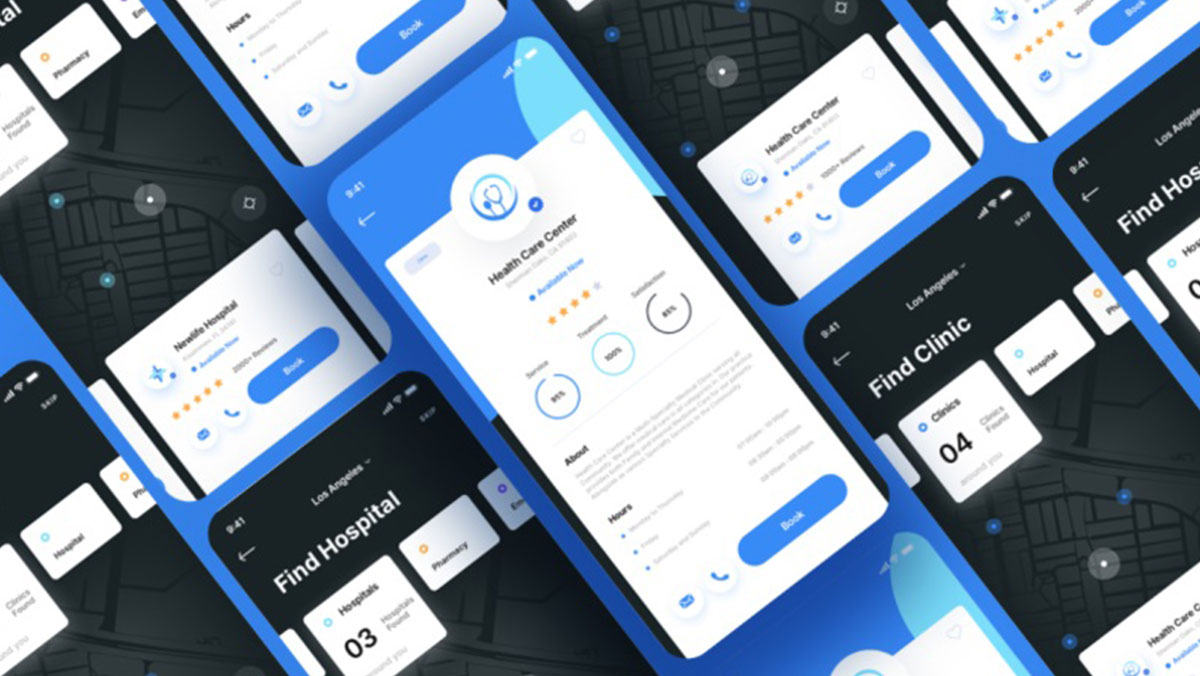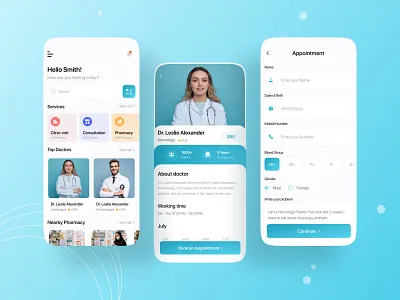Changing Patient Experience with a User-Friendly Mobile App for Clinics
Changing Patient Experience with a User-Friendly Mobile App for Clinics
Blog Article
The Future of Healthcare: Why Clinics Required a Mobile Application Today
As the health care landscape remains to develop, facilities deal with placing stress to adapt to individual assumptions for higher ease and access. The integration of mobile applications can serve as an essential approach for enhancing client engagement and improving procedures. By leveraging technology to boost communication and give essential services, centers not only address existing demands but likewise position themselves for future success. Nevertheless, the ramifications of this change expand beyond simple functional performance; they can redefine client partnerships and care delivery in extensive ways. What might this improvement appearance like for both facilities and people?
Transforming Patient Assumptions
As the landscape of health care progresses, client assumptions are going through a substantial transformation. Today's clients are progressively seeking comfort, ease of access, and customized treatment.
Moreover, patients are becoming more educated and equipped, often looking into problems and treatments on the internet before consultations. This heightened recognition is paired with a demand for transparency in healthcare procedures, including cost quotes and therapy alternatives. As a result, service providers are urged to adapt by taking on digital tools that improve the patient experience.
The assumption for efficient and prompt communication has actually never been higher, with several clients taking into consideration responsiveness an important component of high quality treatment. mobile app for clinics. In this advancing landscape, health care companies need to identify these changing expectations and leverage mobile applications to promote a more patient-centric technique, making sure that they not just fulfill however exceed the standards established by today's enlightened consumers
Enhancing Individual Interaction

Mobile applications help with interaction between individuals and doctor, enabling real-time visit organizing, pointers for medicine adherence, and straight messaging features. These performances not only enhance convenience yet additionally build a sense of accountability amongst clients. Mobile apps can supply academic content customized to private demands, aiding people better understand their conditions and treatment alternatives.
The assimilation of gamification aspects within healthcare apps can additionally inspire people to engage in healthy and balanced habits, strengthening favorable way of life adjustments. Eventually, enhancing patient engagement via mobile applications leads to boosted wellness end results, higher individual complete satisfaction, and an extra collective healthcare experience.
Simplifying Center Operations
Enhancing clinic operations is essential for improving workflow performance and maximizing person treatment. The implementation of mobile applications can considerably decrease management burdens, enabling doctor to focus more on client communications. By automating visit organizing, individual check-ins, and payment processes, facilities can lessen wait times and improve general functional performance.
Mobile applications also help with real-time accessibility to person records, enabling medical care specialists to make educated decisions rapidly. This immediacy not just improves the quality of care yet additionally decreases the probability of mistakes connected with misplaced or dated info. Leveraging mobile innovation supports an extra well organized method to managing person follow-ups and treatment strategies, making certain that no essential why not check here actions are forgotten.
This allows for timely replenishment and helps stay clear of disruptions in person care due to stock scarcities. By incorporating these performances into their day-to-day procedures, clinics can create a more cohesive Recommended Site and efficient setting, ultimately leading to enhanced patient end results and complete satisfaction.
Improving Interaction Channels
Reliable communication is frequently cited as a cornerstone of high quality health care shipment. In today's busy clinical environment, mobile applications can dramatically boost interaction channels between centers, individuals, and medical care companies. By integrating mobile apps into their operations, centers can assist in real-time interactions, making sure that patients receive timely info concerning their consultations, examination results, and treatment strategies.
Mobile applications likewise encourage people to communicate straight with their healthcare teams via safe messaging attributes. This straight line of communication cultivates a sense of involvement and enables immediate information of concerns, which can bring about better adherence to treatment protocols. In addition, push notices can advise individuals of upcoming consultations or drug timetables, lowering no-show prices and enhancing overall health outcomes.

Remaining Competitive in Medical Care
In a swiftly developing health care landscape, organizations should focus straight from the source on innovation and versatility to preserve an affordable side. The combination of mobile applications into healthcare services is no more optional; it is important for facilities aiming to improve individual interaction, simplify procedures, and improve total solution shipment.
As clients progressively rely upon digital platforms for health and wellness monitoring, clinics that fall short to embrace mobile modern technology risk falling behind. A well-designed mobile app can offer features such as appointment organizing, telemedicine appointments, and access to medical records, giving individuals with comfort and fostering commitment.

Rivals are also investing in mobile solutions, so remaining ahead needs constant enhancement and staying notified concerning technological innovations. Clinics must not just apply mobile applications yet also participate in routine updates and improvements. Eventually, the effective assimilation of mobile modern technology will certainly identify forward-thinking healthcare companies and established the standard for patient-centric care in an electronic world.
Conclusion
In verdict, the integration of mobile applications in facilities is critical to resolve the advancing landscape of person assumptions. Inevitably, the calculated execution of mobile apps represents an important step towards supplying available and customized health care, consequently fulfilling the requirements of today's empowered patients.
Eventually, boosting patient engagement via mobile applications leads to boosted health and wellness outcomes, higher individual complete satisfaction, and a more joint medical care experience.Mobile applications additionally promote real-time accessibility to patient documents, making it possible for healthcare specialists to make informed choices quickly. In today's busy clinical setting, mobile applications can substantially improve communication channels between centers, people, and health care carriers.Mobile apps additionally encourage clients to interact straight with their healthcare groups with protected messaging features. Ultimately, the critical implementation of mobile apps represents a crucial action toward delivering personalized and available medical care, therefore meeting the requirements of today's equipped clients.
Report this page